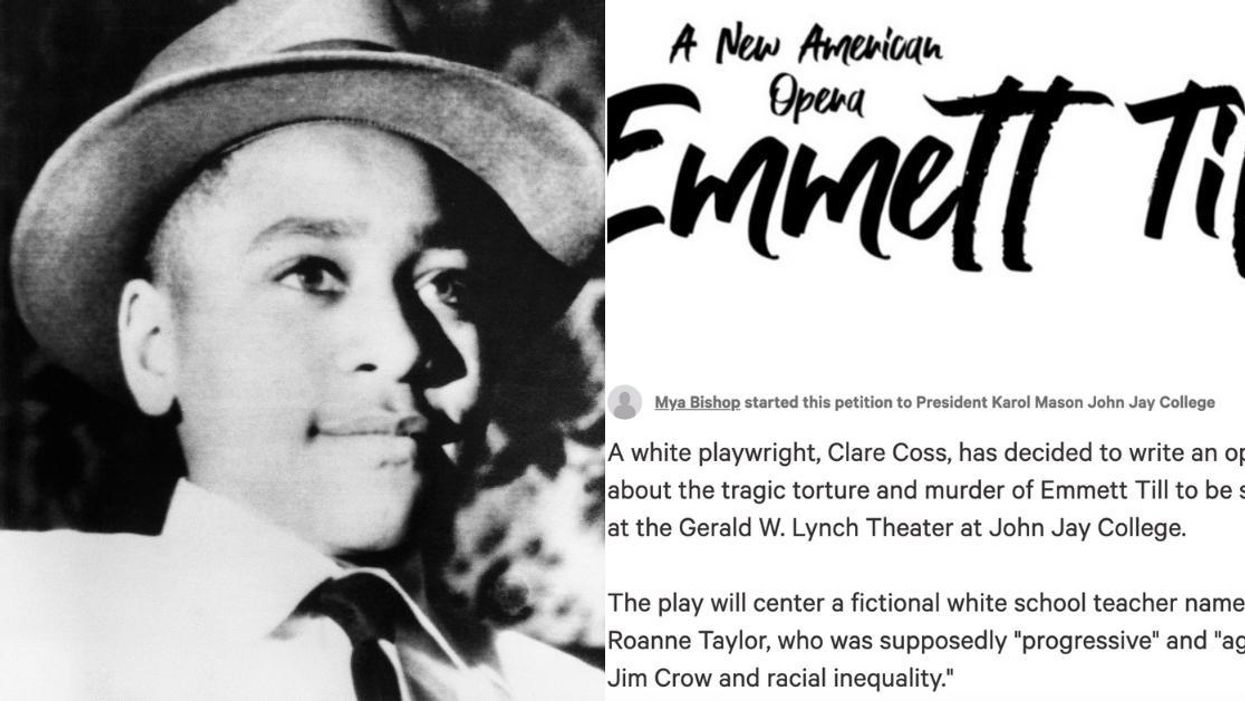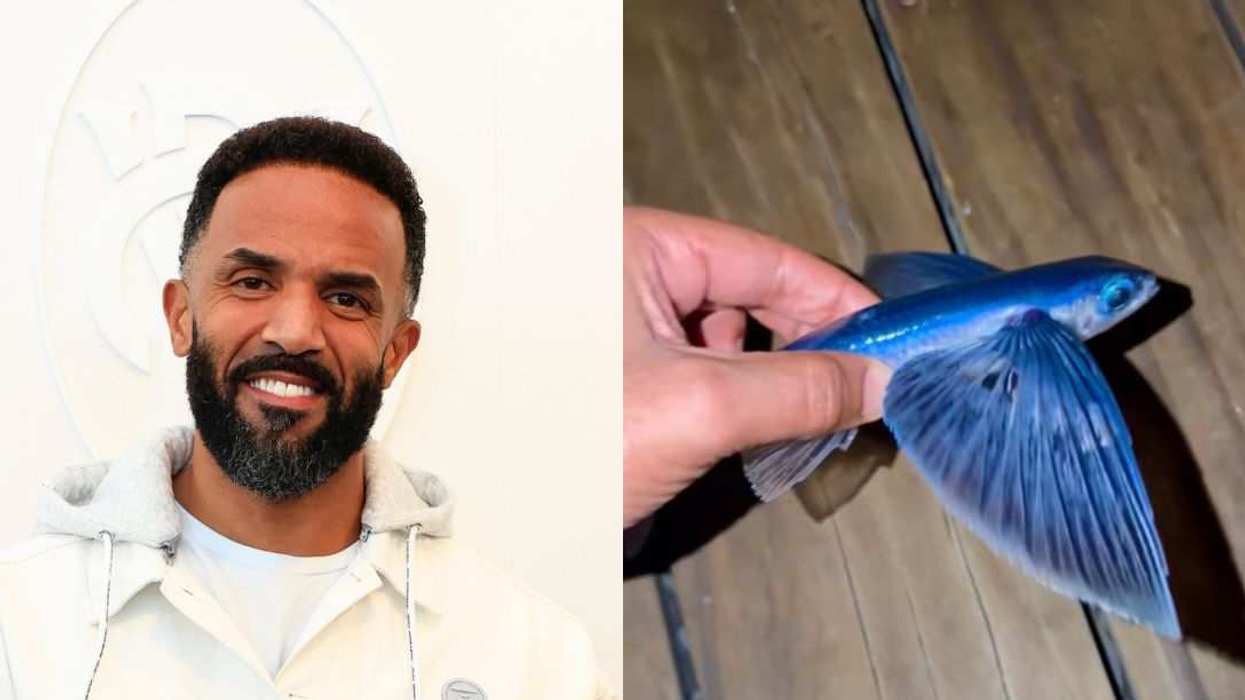A petition to cancel the premiere of a new American opera based on the tragic murder of 14-year-old Emmett Till has received over 13,480 signatures.
Emmett Till, A New Opera, with a score by Black composer Mary Watkins and a libretto by White playwright and author Clare Coss, is set to premiere at John Jay College's Gerald W. Lynch Theater in New York city on March 23.
While visiting family in Mississippi in 1955, Emmett Till—a 14-year-old Black boy from Chicago—was accused by Carolyn Bryant—a White store clerk—of making verbal and physical advances toward her. Bryant changed her story several times and her sister-in-law would later accuse her of making up the story to get attention from her husband.
In 2007, Carolyn (Bryant) Donham confessed to Duke University senior research scholar Timothy Tyson that she lied about what Emmett said and did. She told Tyson—who was working on the book The Blood of Emmett Till—that Till didn't say anything to her, nor did he touch her in any way on that fateful day.
Bryant's husband Roy—who had been out of town—and his half-brother J.W. Milam subsequently kidnapped, tortured and brutally murdered Till a few days after Carolyn Bryant made her false claims.
Both men were acquitted in a southern court by an all-White jury. But later, under the protection of double jeopardy, the duo would eventually confess to Till’s murder. Till’s horrific murder as well as the trial ignited a major firestorm in the civil rights movement.
Till's mother, Mamie Till-Mobley, continued to fight for justice for her son until her death in 2003. The Department of Justice subsequently re-opened an investigation into Till's death in 2017, only to close it in 2021.
What prompted Mya Bishop, a student at John Jay College, to start the change.org petition to cancel the opera was reading it centers around a fictional White school teacher named Roanne Taylor.
As Bishop stated in the petition:
"Clare Coss has creatively centered her White guilt by using this play to make the racially motivated brutal torture and murder of a 14-year-old child about her White self and her White feelings."
"Telling the story from the perspective of a fictional progressive White woman shows that Clare Coss is more concerned with showing the audience that 'not all white people are bad' than she is with the ongoing fight for racial justice."
Bishop also addressed her concerns regarding the casting of tenor Robert Mack in the title role.
"Adding to the issues with the play, Emmett Till is set to be portrayed by Robert Mack, an adult tenor."
"This decision exacerbates the adultification of Black children which has historically led to their brutalization."
Bishop was particularly surprised John Jay College would be willing to host the opera, it being a "social justice school."
"John Jay College brands itself as a 'social justice school' and its community as 'fierce advocates for justice'."
"It's decision to welcome or cancel this play will determine how true that is."
As the petition began to gain more and more signatures, Twitter users expressed their support for Bishop's petition as well as their dismay that Emmett Till's story would be told from the perspective of a fictional White savior.
Black Opera Alliance—dedicated to "empower[ing] Black classical artists" and expose "systems of racial inequality" in the opera world—also released a statement denouncing the production.
They wrote:
"The Black Opera Alliance Empathizes with and supports the Black artists and producers involved in the upcoming production of 'Emmett Till, The Opera', but we denounce the telling this historic story by a White woman, from a White vantage point."
"It's time for Black creators to be given opportunities to expand the operatic cannon with authentic storytelling from our own perspectives."
"White saviorism is not allyship, its violence and we condemn it."
"It is time for Black joy in opera, Black love in opera, Black triumph in opera, from Black perspectives, and we will continue to work for that progress."
The White savior trope in entertainment and literature is described as:
"...a White central character rescues non-White (often less prominent) characters from unfortunate circumstances wherein a White protagonist is portrayed as a messianic figure who often learns something about themself in the course of rescuing non-White characters from their plight."
Oscar winning films like Dances With Wolves and The Help have been identified as examples of the White savior trope where the experience of marginalized people is told only as it relates to a progressive, enlightened White sympathetic figure. The inclusion of an unrealistic White protagonist pushes a "not all-White people" narrative at the expense of allowing a story about marginalized people's experiences to be told authentically.
Composer Watkins expressed her disappointment in the petition in a statement to Playbill.
"It is very disturbing that people are condemning this piece without having seen or heard it."
"They have jumped on the fact that the playwright is White and assumed all kinds of things about the content of the play."
"Even though there are many artists of color involved in this project, the critics are assuming that we have had no impact on the final shape of the piece and that the playwright has somehow forced all of us to tell her story."
"It is an insult to me as a Black woman and to the company members who are African-American."
Watkins also expressed while the fictional Roanne Taylor is a character in the production, the opera is not about her specifically.
"Yes, the opera has a fictional White character—but it isn't about her."
"It is a true story that happened in our American history that could be told by anyone."
"The story is told from the viewpoint of one who recognizes that staying silent, instead of confronting a vicious system, allows the dehumanization of human beings to be a way of life."
" She comes to the realization that she and others like her have a responsibility to speak out and condemn racism."
Librettist Coss also defended her involvement in the piece, saying the piece was a collaboration between two women who were deeply affected by Till's tragic murder from two different perspectives.
"Composer Mary Watkins and I have been collaborating on the creation of Emmett Till the opera since 2013."
"Mary was 15 in 1955 and I was 20, each of us deeply and differently impacted by the barbaric lynching of 14-year old Emmett Till in the Mississippi Delta, and the failure of justice"
"To illuminate lifelong heartfelt pain—Mary through her profound music, me through words—our dual partnership advanced and expanded with the artists who joined us along the way."
Coss also defended her inclusion of the fictional Taylor, saying she was included for a very specific purpose.
"The one invented White character, Roanne Taylor, a schoolteacher who cares but is silent, reflects Martin Luther King, Jr.’s ultimate tragedy: the silence of the good people."
"She represents the context of White Supremacy in which the world of violence and terror was enabled."
"She takes a first step forward to break the silence."
Nina Flowers, a representative for Coss and Watkins issued a statement to The New York Post saying the plot of the opera does not focus on Taylor but instead Till's mother, Mamie Till-Mobley.
John Jay College declined to comment on the opera, only claiming it was an "outside production."
In spite of the over 13 thousand signatures and resulting controversy, the production will go ahead as planned.
But Mya Bishop stood firm in her opposition to the opera, saying in an update:
"I also want to say that regardless of some Black involvement in the creation of the play, in my opinion, it is still inappropriate for Emmett Till's story to be used in this way."
"Had he not been lynched, there would be no opera."
"There would be no money generated and no attention brought to Clare Coss's career because of it."














 @TweetforAnnaNAFO/X
@TweetforAnnaNAFO/X

 Steve Urkel Oops GIF
Steve Urkel Oops GIF  Moon Walk Dance GIF
Moon Walk Dance GIF  The Office Monday GIF by 20th Century Fox Home Entertainment
The Office Monday GIF by 20th Century Fox Home Entertainment 